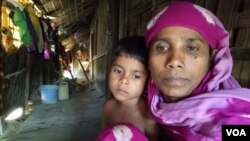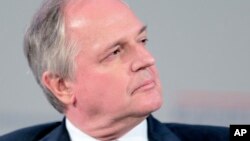Activists are urging Unilever, a major investor in Myanmar, to speak out against the country’s treatment of its Rohingya minority, which the U.N. has said may be called “crimes against humanity.”
More than 10,000 people have joined the Facebook group for the campaign, known by the #WeAreAllRohingyaNow, and hundreds have signed on. A letter sent this week to Unilever CEO Paul Polman asked the company to clarify its stance on the Rohingya.
“Silence in the face of genocide, whilst doing business, is simply not an option,” said Britain-based campaign organizer Jamila Hanan. “Multinational corporations must start to speak out. They must be obliged to use their power and influence to help bring about a more just society in the regions in which they operate.”
Unilever did not immediately respond to requests for comment.
Citizenship rights
Rights groups accuse the Myanmar army of burning homes, mass killings and rape in their sweeping counterinsurgency campaign in Rakhine state, where most of the estimated 1 million Rohingya live.
The Muslim Rohingya have long faced systematic discrimination in Myanmar, a majority-Buddhist country. Most do not have citizenship and are considered illegal immigrants from Bangladesh, even when they’ve lived in Myanmar for generations. The #WeAreAllRohingyaNow group is seeking a restoration of citizenship rights denied to the Rohingya by a military government in 1982.
Hanan says the group chose to target Unilever because it has been responsive to activists in the past.
Advocate for social responsibility
Unilever, with some $55 billion in revenue last year, is one of the world’s largest consumer goods companies. Billions across the world buy Unilever-made Dove soap, Lipton tea, and Hellmann’s mayonnaise.
The company’s first factory in Myanmar opened in 2013. It now manufactures food and shampoo near Yangon.
Polman is a major advocate for corporate social responsibility and has won dozens of awards in eight years at Unilever’s helm. He recently signed an open letter to the U.N. citing concerns about Myanmar’s military offensives in Rakhine State, but not on behalf of Unilever, which has kept silent on the country’s politics.





